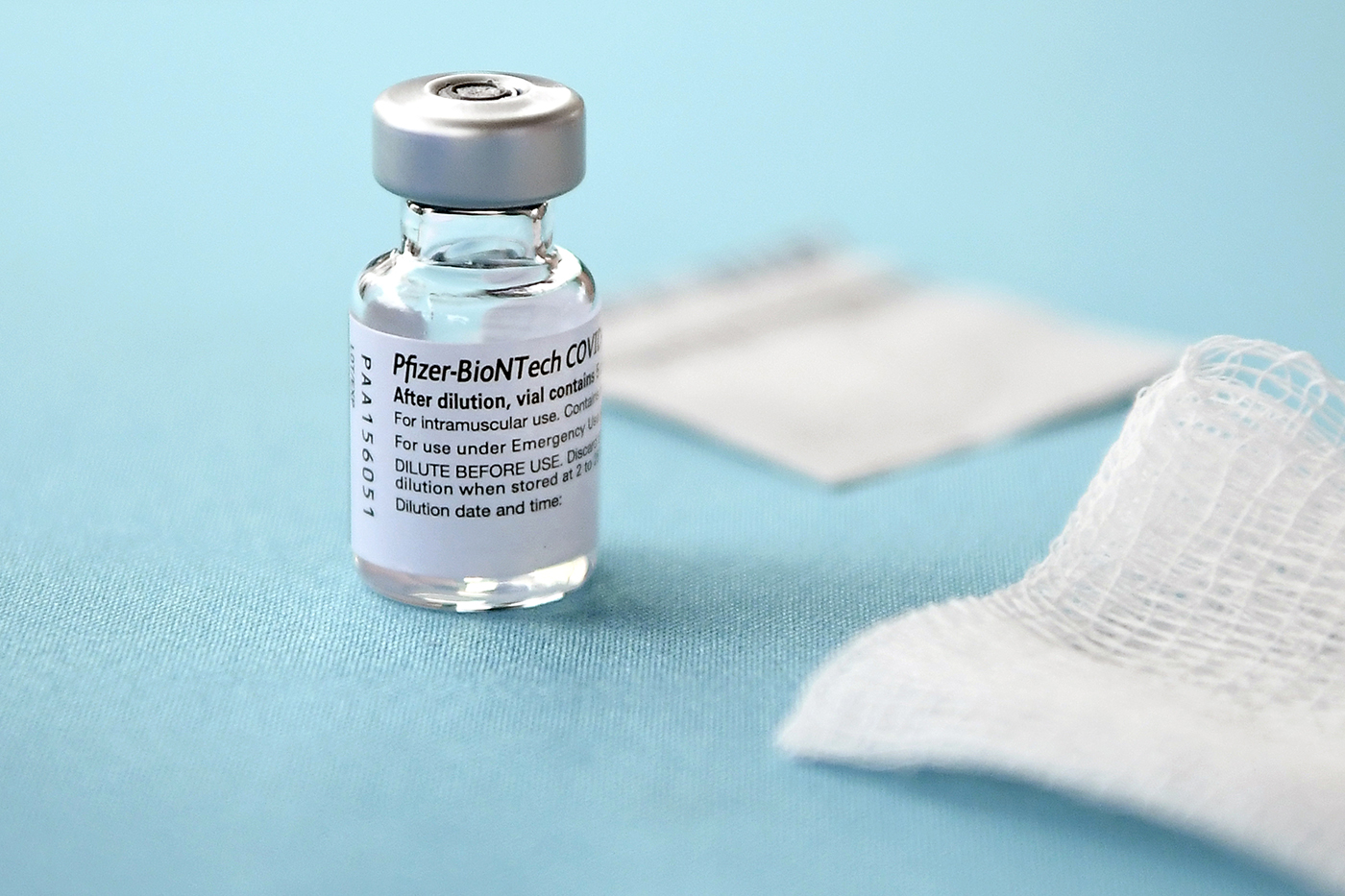The authors, led by allergists at Massachusetts General Hospital in Boston, conducted a detailed review of issues relating to allergic reactions to the Pfizer-BioNTech and Moderna vaccines.
They conclude that reactions to vaccines are rare, and that even people with known food or medication allergies are safe to receive the vaccine under the right circumstances.
The paper, which appears in the Journal of Allergy and Clinical Immunology: In Practice, provides reassurance about the vaccines’ safety.
COVID-19 vaccines
Since the emergence and rapid spread of SARS-CoV-2 and its corresponding disease COVID-19, teams of scientists worldwide have been funneling their energies into developing safe and effective vaccines.
Without these vaccines, governments have had to implement emergency measures, such as physical distancing and periodic lockdowns. These have had a profoundly disruptive effect on society, the economy, and people’s everyday lives.
To date, two vaccines have received approval for emergency use by the Food and Drug Administration (FDA): One from Pfizer-BioNTech, and the other by Moderna. Both vaccines involve a cutting-edge approach based on mRNA technology.
Studies show that the vaccines are highly effective, conferring 95% and 94% immunity after two doses, respectively.
However, since the Pfizer-BioNTech vaccine’s roll-out in the United Kingdom, there were reports of two allergic reactions to the vaccine.
A vaccine is only effective if people are willing to take it, so ensuring confidence in their safety is crucial. With this in mind, the allergists who penned the new article investigated the details of allergic reactions to vaccines.
They offer guidance on who can safely take the vaccine, what screening questions healthcare professionals should ask, and how a person who has an allergic reaction to the vaccine’s first dose can most safely receive the second dose.
The allergists point out that, in general, vaccines are incredibly safe, with only around 1.3 anaphylactic reactions per 1 million vaccine doses administered.
When allergic reactions occur, they are typically in response to the inactive ingredients that accompany the vaccine’s active ingredients.
These inactive ingredients perform a range of functions, including preventing bacterial contamination, stabilizing the vaccine during transportation and storage, and ensuring a stronger immune response.
Both the Pfizer-BioNTech and Moderna vaccines use the inactive ingredient polyethylene glycol (PEG) to stabilize the active components. Drug manufacturers use PEG in many approved over-the-counter pharmaceuticals.
The authors of the present article note that while there is some evidence that a person’s immune system may react to PEG, anaphylactic reactions are rare.
Nonetheless, they note that many allergists hypothesize that a preexisting PEG allergy may account for the small number of reported cases of allergic reactions to the COVID-19 vaccines.
At the time of publication, the authors note that of the 2 million doses of the Pfizer-BioNTech vaccine administered in the U.S., there have been at least 10 reports of allergic reactions. All of them occurred during observation immediately after the person received the vaccine, but the participants quickly received treatment that completely resolved their symptoms.
The authors highlight that the FDA recommend people with a history of severe allergic reactions to any component of the Pfizer-BioNTech vaccines should not receive the vaccine.
They also state that the Centers for Disease Control and Prevention (CDC) recommend that clinical staff monitor people for 15 minutes after they receive a COVID-19 vaccination. For people with a history of allergic reactions to vaccines, clinicians should monitor them for 30 minutes after vaccination.
The authors also explain that the CDC recommend that staff administering the vaccine receive training to respond to anaphylaxis.
Supplementing these guidelines, the allergists have developed a screening questionnaire that they say can quickly and safely determine if a person with allergies should receive the vaccine, and if so, under what conditions.
The questionnaire asks if the person has had a severe allergic reaction to:
- injectable medications
- a vaccine
- other allergens
- PEG
A response of “no” to all the questions means the person is lower-risk and can receive the vaccinations under the usual conditions.
A person is considered medium-risk if they answer “yes” to questions 1, 2, or 3. In this case, clinicians would observe them for 30 minutes, rather than 15.
If an individual reports an allergic reaction to the first dose of the vaccine, the authors suggest that allergists confirm this by using a skin test. Depending on the severity of the reaction, the allergist and the individual may decide it is safer to avoid the second vaccine dose.
Alfonso
Covid-19 South America Expert




